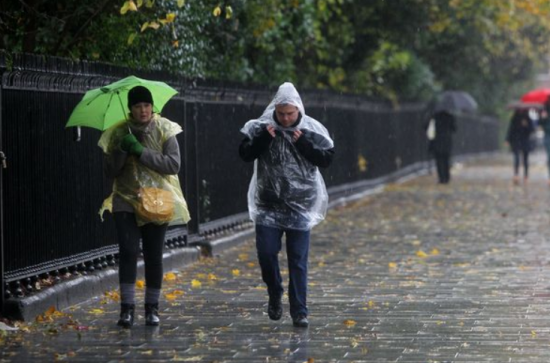
The decade 2006 to 2015 was Ireland’s wettest on record, according to a newly developed 305-year record of rainfall for Ireland compiled by Dr Conor Murphy, Senior Lecturer in Geography at Maynooth University, and a team of national and international collaborators. The research is published in Climate of the Past today.
The team’s research showed a 10-year average rainfall of almost 1,990 mm per year over the recent decade, compared with a long-term 300-year decadal average of 1,080 mm per year, and just 940 mm in 1740-1749 – the driest decade on record.
The record provides monthly rainfall totals representing the island for each month since January 1711, and means that Ireland now has one of the longest, quality assured rainfall records anywhere in the world.
Commenting on the rainfall record, Dr Conor Murphy said: “The most recent decade was our wettest on record, and when we look at the long-term context, we see a continuous rise in annual and winter rainfall. This is consistent with expectations of human driven climate change.”
While one of the most significant takeaways from the record is that Ireland’s weather was at its wettest between 2006 and 2015, the data also reveals that over the long-term, winters are getting wetter and summers are getting drier.
By compiling data from the UK and Ireland, including previously unpublished work from the 1970s by the UK Meteorological Office, Dr Murphy and team have created one of the most comprehensive monthly rainfall series in the world.
Dr Murphy explains: “The fact that we have such a long rainfall record for Ireland is thanks to the meticulous work of weather enthusiasts and meteorologists from the Ireland and the UK over hundreds of years. The record draws on the very earliest rainfall observations made in this region, together with weather diaries compiled during the 1700s.”
“The task of stitching all the data together was first undertaken by UK Met Office staff in 1979 – work which was largely forgotten until recently. In those days there was not as much emphasis on publishing research in scientific journals and their work was just reported in an internal memo.”
“We were able to merge that Met Office record with another quality assured dataset, which we recently compiled for Ireland for the period of 1850 to present. When combined, the derived record gives us an unprecedented picture of rainfall variations for every month from 1711 to 2016. The record also provides unique insight into past weather extremes and changing rainfall patterns well beyond the relatively recent history of available digital records.”
Dr Murphy comments: “Working on this rainfall series was exceptionally humbling. It represents the lifetime work of many people over hundreds of years. Thanks to their care and attention, we can not only see how rainfall has changed in Ireland, but also look at what was going on in the wider world to influence it.”
“For example, the driest winter in our record is 1783-4, and this coincides with the eruption of the Laki volcano in Iceland, which emitted millions of tonnes of sulphur dioxide into the air, creating what was called the ‘Laki haze.’ This gave much of Europe an extremely hot summer, followed by a dry and severe winter.”
“Recent wet weather has had significant effects on Ireland; winter 2015/16 saw extensive flooding across Ireland, while winter 2013/14 was the stormiest on record. These winters, which not only took place during our wettest decade, are also the first and second wettest individual winters on record.”
The rainfall series has a number of practical uses, which go beyond general interest in extreme weather events. Dr Murphy explains: “This record can be used to track changes in rainfall, both natural and driven by human activities. The range of variability and the extreme events contained in our record also offer valuable information for stress testing critical infrastructure such as flood defences and water supply systems.
“This helps ensure that vital water services are resilient to future wet and dry periods in Ireland. We hope that our rainfall series will be as valuable to the work of future scientists as the legacy of past weather observers has been to ours.”
Read more on RTÉ Brainstorm.
